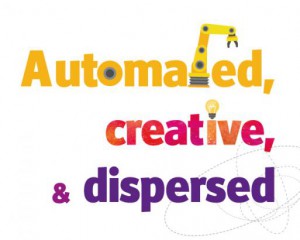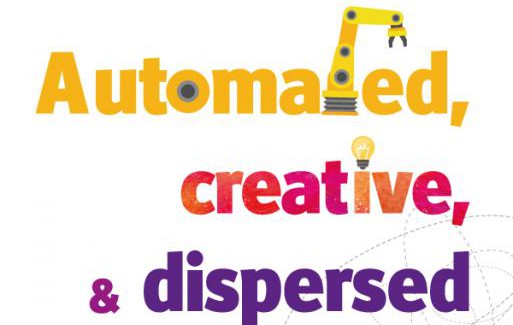 A new report by the Economist looks at the future of work in the 21st Century. Liz Shutt, Head of Policy, at University Alliance, was interviewed for the report ‘Automated, Creative & Dispersed’ to share her views on the University of the Future.
A new report by the Economist looks at the future of work in the 21st Century. Liz Shutt, Head of Policy, at University Alliance, was interviewed for the report ‘Automated, Creative & Dispersed’ to share her views on the University of the Future.
Universities are being encouraged to move closer to industry. More flexible ways of delivering higher education will help them achieve that.
Universities face an uncertain future as society debates what higher education is for, how it should be delivered and how it should be paid for. A common view is that universities must move closer to industry, not least so that they can provide graduates with the skills that companies are looking to hire.
Students are pushing harder to fit the bill of their future employers, and increasing numbers of doctorate students— currently 60%—are pursuing careers in business instead of academia.
Liz Shutt, policy director at the University Alliance, a group of 20 universities, says there is “a real drive for academic professionals to work across the university and business divide”.
This requires university workers to develop new skills, she says. Ms Shutt predicts that in future lecturers will be encouraging more of their students to take work placements or even launch their own start-ups, and developing relationships that give industry a greater input into the direction of research. “We need to develop skills in interaction with business and in preparing students for the work world.”
As the working world evolves, so too will the skills required of graduates entering the workforce. For example, as automation takes a stronger hold in industry, particularly in sectors such as manufacturing and finance, it will reduce the need for low-skilled workers and middle management. Ms Shutt says that universities and schools will need to be aware of the evolving nature of work and direct students towards careers “where the skills needs clearly exist”.
Technological developments may well help universities tointegrate themselves more effectively with industry. Massive open online courses (MOOCs), an accessible and cheap form of online learning, have the potential to make higher learning more flexible, and therefore easier to combine with work placements or even running a business.
Professor Anant Agarwal is chief executive at EdX, a non-profit MOOC platform founded by the Massachusetts Institute of Technology and Harvard University with over 3.5m students regularly logging in around the world. He says the impact of digital technology will be that the future university is “unbundled”, in a similar way to the telecoms industry, with different providers offering the tuition or services they are best at.
“At the moment, research shows that only one-quarter of students fit in with the concept of going to university for four years from age 18,” Professor Agarwal says. “If we unbundle time, students can take their first year online, come to the campus for two years, and spend the final year continuously learning within work.”
Professor Agarwal expects some courses to be conducted entirely online, some with in-class web resources, and others to remain in person only. This would change the level of in-university staff demand, but he says the impact will be positive: “Some professors don’t like to lecture, and others want better resources to support them. MOOCs help here. And for those who want to teach online, we offer special MOOCs to help them develop relevant skills.”
Ms Shutt views MOOCs as “more of an evolution than a revolution”, adding that lecturers are adapting to the skill sets. “There’s a lot of buzz about MOOCs, which are very interesting but will mainly be part of existing courses at universities, with some elements online and some in person,” she says.




